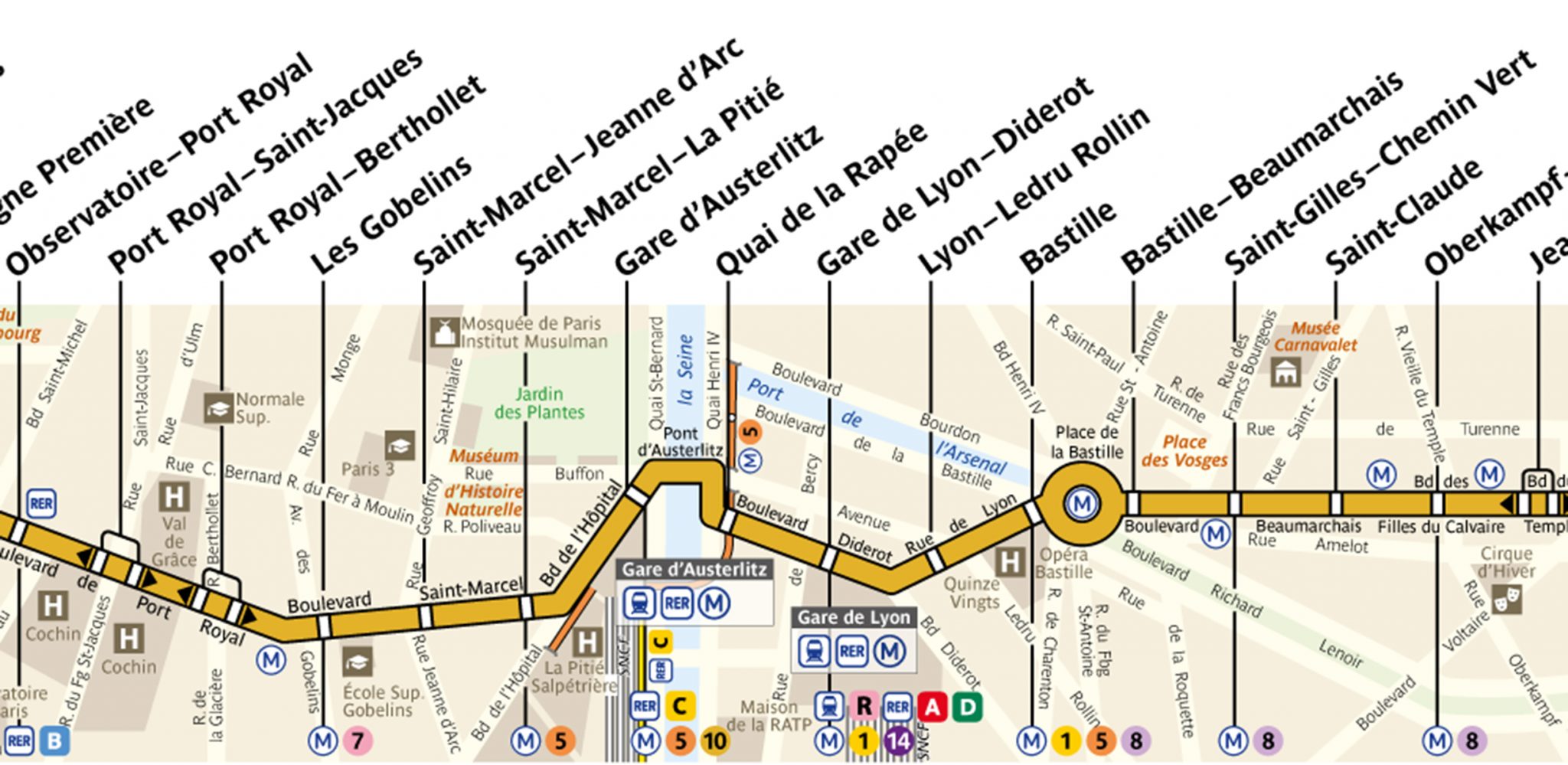Written during the author’s daily commute through Paris, this collection channels the experiments of Georges Perec and the Oulipo into a moving reading of personal and public trauma
How do we create order out of the great blooming, buzzing confusion of life? Depending on which psychologists you read, we either impose abstract concepts on the world or we identify them from our experience of the world and project them into the future. In this collection of notes typed into her phone during a daily commute through Paris, the writer and academic Lauren Elkin demonstrates that these ways of making sense of the world are not mutually exclusive.
Elkin deploys a simple constraint to generate her texts: she will write on the bus during the time it takes her to get to work or back. That the conceit is indebted to the French experimental writing group the Oulipo is made explicit: one of the short entries takes the form of a ‘metro poem’ as devised by Oulipo member Jacques Jouet (the writer must compose a line between each stop), while the influence of Georges Perec’s celebrated An Attempt at Exhausting a Place in Paris (1975) is apparent on every page.
What distinguishes Elkin’s diaristic entries from Oulipo’s tendency towards a dispassionate method is the messiness that writing on a bus entails. Where Perec leisurely appraises Paris from a café, Elkin is harried by manspreaders and irritated by late buses. Over the course of a year marked by personal and public trauma – Paris endures a series of terror attacks, the author suffers an ectopic pregnancy – this close attention to our emotional experience of the everyday is revealed to be the book’s strength. It may also explain why it’s being published now, when it’s possible to feel nostalgic for the merely routine unpleasantness of standing next to a coughing commuter. Here is how life used to feel, under the old normal.

Notes… reads at first like a sketchbook of Paris through the frame of a bus window, Elkin’s eye drawn to the performances that make cities so theatrical. Unsurprisingly for a literary critic, Elkin is strong on novelistic details: the man who appears to be leaning down to stroke the flank of an invisible pet, but is tenderly smoothing the suede on his ankle boot, is Parisian masculinity in a brushstroke. Yet in time she attends more closely to her fellow passengers – there are vignettes of fierce young women, angry teens and exhausted mothers – and finds in them some kind of community.
Like any community, it is not perfectly harmonious. The writer rails against those who fail to observe the social contract – refusing to give up their seats, listening to loud music – yet is also, on occasion, guilty of the same transgressions. It struck me that the suppression of these irritations might be what distinguishes a real-world community from those online. You can’t choose to fill your bus with people who share your opinions, so you learn to find ways of living with them.
Elkin suggests that community might be defined as people ‘going together, while companionably ignoring each other’. Tolerance is predicated on respecting the unknowability of others. You don’t have to understand everything about the people you share a space with, nor empathise with their positions, which are not and cannot be yours. Companionably ignore those as you hope yourself to be companionably ignored: the time will come when you need to take a seat on the crowded bus for reasons you are not obliged to explain. This is itself a (liberal, Rawlsian) politics, and the reader will decide the extent to which the author is imposing these principles on her surroundings or deducing them from what she sees. Either way, the act of recording reveals as much of the writer as of her subject. When she writes one morning that ‘suddenly the world is full of strollers’, we know that it is not the world that has changed but the writer. The constraints on how she sees the city have changed, the filter has been adjusted.
Notes on a Parisian Commute is a sketchbook record of the patterns that shape our experience and how they are disrupted. In order to keep living, Elkin proposes, we assimilate those disruptions into our experience by weaving them into the stories we tell ourselves. This unexpectedly moving book shows how we remake the everyday, every day.
No. 91/92: Notes on a Parisian Commute, by Lauren Elkin, is published by Les Fugitives
